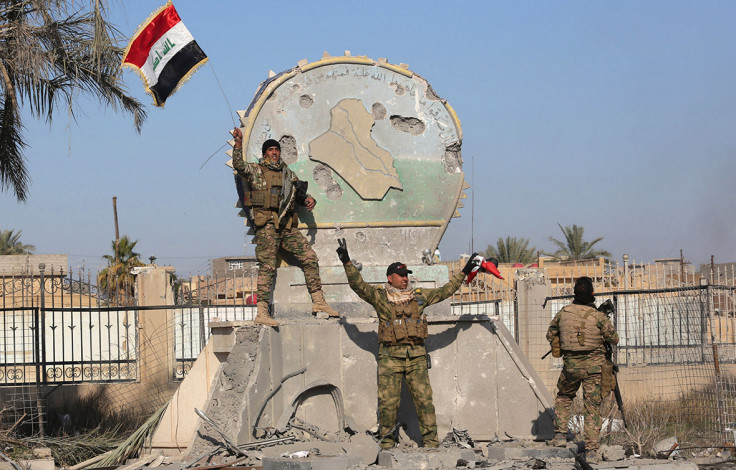War on Isis: Recapture of Ramadi a major turning point against Daesh
The Iraqi security forces' victory over Islamic State (Isis) militants in Ramadi, the capital of Iraq's western province of Anbar, is both a strategic and spiritual turning point against the Islamist group, according to analysts.
After encircling the city for weeks, a 10,000-strong Iraqi military force launched a campaign to retake Ramadi, located about 130km (80 miles) west of Baghdad, just before Christmas. The forces finally declared victory on 28 December, with the Iraqi flag being flown above the central government complex.
The capture of the city, capital of the mainly Sunni-Muslim Anbar province, deprives Daesh (IS) militants of their biggest prize of 2015. The fighters seized the city in the Euphrates River valley, west of the capital, in May after government troops fled in a defeat.
Speaking to China Central Televesion (CCTV News), political analyst Hussein (who did not give his first name) said the victory was a turning point against IS.
"The recapture of Ramadi is a strategic turning point in the fight against the extremist group. It directly relates to the retaking of other cities including Fallujah, Al-Qa'im, and many other IS-held cities. As for the retaking of Ramadi itself, it has created favourable conditions for the Iraqi government forces to advance toward Mosul," he said.
Mosul, northern Iraq's main city, is by far the largest population centre the self-proclaimed caliphate IS rules in Iraq and Syria.

Another analyst, Emir, noted that the victory over IS fighters was of both spiritual and strategic significance.
"The recapture of Ramadi has significance in two aspects, both the strategic and spiritual ones. Strategically, it reduces the room for the extremist group for transportation and replenishment, and at the same time it cuts off the group's supply line connecting to the provinces of Salahudin and Nineveh. Previously, extremists in the two provinces had gained a continuous supply of personnel and weapons thanks to the extension of the supply line," he said.
As the biggest province in Iraq, Anbar is an important transport hub connecting to neighbouring Syria, Jordan and Saudi Arabia. It also borders the Iraqi provinces of Salahudin and Nineveh, both of which are currently held by the IS.
"It means a spiritual victory over the extremist group, because Anbar Province is considered one of the most important region held by the IS. I remembered that it was in Anbar Province that the IS declared the establishment of its so-called 'emirate' and announced to set its administrative centre at Fallujah," added Emir.
Should we cease using Islamic State, Isis or Isil and begin using 'Daesh'?
IS fighters and leaders hate the word - it's an Arabic acronym of "al-Dawla al-Islamiya fi Iraq wa ash-Sham" – meaning the Islamic State of Iraq and al-Shams – but when spoken Daesh sounds similar to the Arabic words translating to "the sowers of discord" (Dahes) or "one who crushes underfoot" (Daes). IS threatened "to cut the tongue of anyone who publicly used the acronym Daesh, instead of referring to the group by its full name".
Triumphant Iraqi Prime Minister Haider al-Abadi declared that the coming year would see his forces defeat Daesh (IS). "2016 will be the year of the big and final victory, when Daesh's presence in Iraq will be terminated," Abadi said in a speech broadcast on state television. "We are coming to liberate Mosul and it will be the fatal and final blow to Daesh," he added.
Despite claims that Ramadin has been "fully liberated", the Iraq's General Ismail al-Mahlawi. states that parts of the city still remain under the control of Islamic State. Isis fighters have retreated from about 70% of the city but still control the rest, with Government forces not in full control of many districts from which Daesh have retreated, according to an AP report.
© Copyright IBTimes 2024. All rights reserved.






